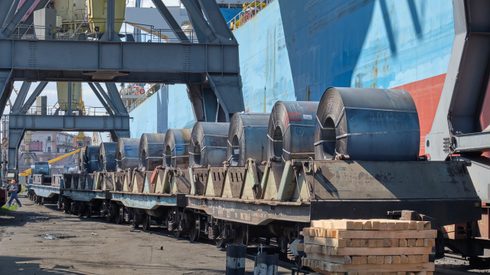Demand in the European market for electric vehicles (EVs) is only expected to increase with the uptake of e-mobility continuing.
On Tuesday February 21, Ford signed a non-binding agreement with battery maker LG Energy Solutions and Koc Holding to establish a joint venture for the purpose of setting up an EV battery cells plant in Turkey, the carmaker said.
The joint venture, subject to final agreement by all parties, was expected to start construction work later this year.
The plant was projected to be operational by 2026, with at least 25GW per year of battery production capacity. This could ramp up to 45GW per year, Ford said.
The news was in line with the US-based company’s plans to localize the supply chains for the regions in which it operates. As a result, the batteries produced by the joint venture were expected to be used in the EVs offered by Ford in the European market, it said.
Last year, Ford announced its intention to offer only EV models in Europe by 2035.
Lithium is a key component in the production of rechargeable batteries for EVs but it has been in a supply-demand deficit for the past two years and was likely to show a 14,300-tonne deficit in 2023, according to Fastmarkets’ research team.
A revival in demand from the downstream battery sector for EVs has propelled prices dramatically higher over the past two-and-a-half years, although a slowdown in demand in China has recently put some downward pressure on international lithium markets.
Fastmarkets’ weekly assessment of the lithium hydroxide monohydrate, LiOH.H2O 56.5% LiOH min, battery grade, spot price, ddp Europe and US, was $74-77 per kg on February 23. This was down by 1.31% from February 16. The price had been assessed at $9-11 per kg on January 7, 2021.
Weakness in the domestic Chinese lithium market has partially filtered through to the international markets, with buyers in wait-and-see mode, hoping for further price decreases.
Keep up to date with the latest news and insights in the lithium market by visiting our dedicated lithium page.






